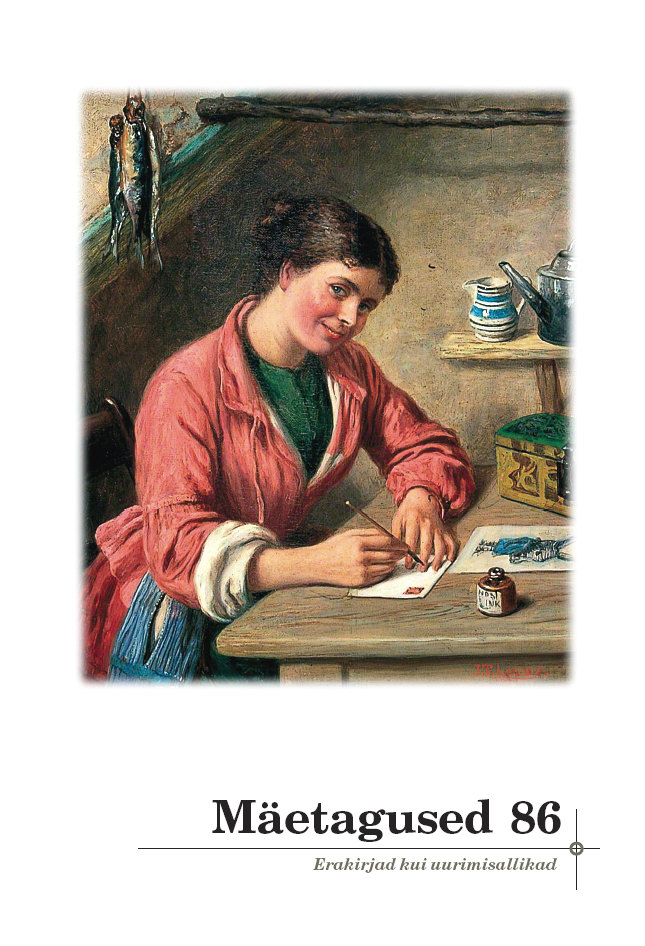Luulesõrestik üle ookeani. Marie Underi ja Ivar Ivaski kirjavahetuse teemaanalüüsi poole
Frameworks of poetry crossing the ocean: Toward a thematic analysis of the correspondence of Marie Under and Ivar Ivask
Author(s): Marin Laak, Tiina Ann KirssSubject(s): Customs / Folklore, Studies of Literature, Cultural Anthropology / Ethnology, Culture and social structure
Published by: Eesti Kirjandusmuuseum
Keywords: diaspora; epistolary culture; exile literature; Ivar Ivask: letters; Marie Under; text corpora; topic modelling;
Summary/Abstract: This article proposes to discuss the voluminous literary correspondence of the Estonian poets Marie Under (1883–1980) and Ivar Ivask (1927–1992), with a focus on its first year, 1957–1958. The whole correspondence comprises 550 letters, with an average length of 4000 (later 3000) words; it is held in the Cultural History Archive of the Estonian Literary Museum in Tartu. Both Under and Ivask had been war refugees, with Under and her husband, poet Artur Adson, finding an exile home near Stockholm, Sweden; Ivask and his wife Astrīde, a well-known Latvian poet emigrated to America after some years spent in DP camps in Germany. Marie Under was already a renowned poet during the Siuru movement in the Estonian Republic, and became a symbol during the Second World War, continuing to publish and hold a large reading audience in exile. In addition to her own poetry, she was a versatile translator of poetry from several languages into Estonian. Ivask, two generations younger than Under, had begun writing in Germany, but continued to search for his linguistic and cultural identity for some time: his mother tongue was Latvian, and the language of his father was Estonian; German was spoken at home. At length and around the time of the beginning of his correspondence with Under, he decided that Estonian would be his poetic language. Since coming to the United States, Ivask completed a PhD in comparative literature and established himself as a scholar and critic in Germanic Studies. He became associated with the publication Books Abroad, later renamed under his editorship as World Literature Today. Under’s and Ivask’s letters are rife with exchanges about core values in poetry, art and worldview, stylistics and poetics, as well as practicalities of publication. After a brief introduction to theoretical approaches to the analysis of letters and correspondences, the article turns to a topical close reading of the letters from Under and Ivask’s first year: main foci included translations of the poetry of Karl Čaks, translation priorities, discussion of the aims and planned trajectory of a new cultural journal in Estonian named Mana (to which both contributed), perspectives on Ivask’s debut as a young poet, the future of Baltic literatures abroad, and the cultural politics in the exile communities over what attitude to take toward literary production from the homeland. The second part of the article applies methods of digital humanities toward an extensive study of the Under-Ivask correspondence as a linguistic dataset, aiming to arrive at a thematic analysis of the text as a whole. The methods enable the identification of key words, word frequencies and thematic clusters, while making the whole corpus digitally accessible to the scholarly reader. The article concludes with proposals for a further study of the Under-Ivask correspondence, using the methods of digital humanities.
Journal: Mäetagused. Hüperajakiri
- Issue Year: 2023
- Issue No: 86
- Page Range: 97-122
- Page Count: 26
- Language: Estonian

